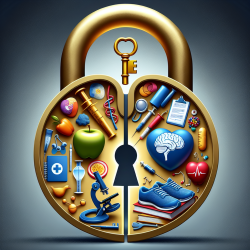The transition to online teaching during the COVID-19 pandemic has been a significant challenge for educators worldwide. A recent study titled "The impact of online teaching on stress and burnout of academics during the transition to remote teaching from home" provides valuable insights into the stress and burnout experienced by faculty members during this period. This blog post explores the key findings of this research and offers practical strategies for educators to enhance their online teaching skills while managing stress effectively.
The Challenges of Online Teaching
The sudden shift from traditional face-to-face teaching to online education required educators to adapt quickly to new technologies and teaching methods. This transition was not without its challenges, as many faculty members reported increased stress levels and burnout. The study found that around 60% of participants experienced moderate stress levels during online teaching under COVID-19 conditions.
Factors contributing to this stress included:
- Lack of experience with online teaching tools and platforms.
- The need to redesign courses for an online format.
- The challenge of balancing work and family responsibilities while working from home.
- The pressure to meet students' emotional and mental health needs remotely.
Strategies for Managing Stress and Burnout
The research highlights the importance of supportive professional development strategies to help educators cope with the demands of online teaching. Here are some practical strategies that can be implemented:
- Invest in Professional Development: Regular training sessions on using online teaching tools can boost confidence and reduce stress. Educators should seek opportunities to enhance their digital literacy skills.
- Create a Supportive Network: Building a community of practice among colleagues can provide emotional support and share effective teaching strategies.
- Prioritize Self-Care: Educators should make time for self-care activities that promote physical and mental well-being, such as exercise, meditation, or hobbies.
- Set Realistic Expectations: It's crucial to set achievable goals for both oneself and students. Flexibility in course design and assessment can alleviate pressure.
- Acknowledge Achievements: Celebrating small wins can boost morale and motivation during challenging times.
The Role of Institutions
The study underscores the need for institutions to provide adequate support to their faculty members. This includes offering mental health services, ensuring access to technological resources, and recognizing the efforts of educators in adapting to new teaching modalities.
The Way Forward
The findings from this study highlight the ongoing challenges faced by educators in the realm of online teaching. As we move forward, it is essential for both individuals and institutions to continue exploring ways to improve the online education experience. By implementing supportive measures and fostering a culture of continuous learning, educators can enhance their skills, reduce stress, and prevent burnout.
This research serves as a valuable resource for practitioners seeking to improve their skills in online education. By understanding the factors contributing to stress and burnout, educators can take proactive steps to create a more sustainable and fulfilling teaching experience.
If you're interested in delving deeper into this topic, consider reading the original research paper. It offers comprehensive insights into the challenges faced by educators during the pandemic and provides a foundation for further exploration in this field.










